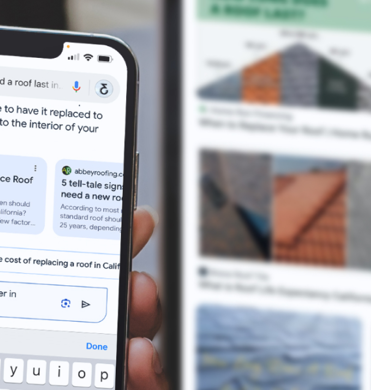What determines the success of a business the most? The customer experience.
It's no surprise that creating a better customer experience is necessary for any business to thrive and grow. Customers want to feel valued and for their interactions with your business to be as smooth and efficient as possible. To create a great customer experience, you need to understand who your customers are and what they need. The only way to accomplish that is through excellent communication.
Customer communications determine every aspect of your business, from sales to customer service. Your messaging must be clear, consistent, and tailored to each customer’s needs. Great communication will help you build trust with customers and create a positive relationship between them and your company.
This guide will help you get started with customer communication and provide tips on how to engage with your buyers. We’ll take a look at best practices for customer communications as well as strategies for managing conversations across various mediums and platforms. With the right approach, you can create a customer experience that leads to long-term success.
How Online Scheduling Can Improve Your Business
Your online scheduling system is one of the first ways customers interact with your brand. This initial experience should be user-friendly and reinforce why choosing your business is the best decision, giving them the confidence to move forward. But that's only possible with an intuitive, frictionless scheduling process from start to finish.
Using an online scheduling system, customers can book appointments at their own convenience without having to wait for a response from your customer service team. This helps to improve the customer experience and encourages them to make repeat purchases in the future, increasing their loyalty to your brands while boosting your revenue streams.
Additionally, online scheduling can help to streamline the internal processes of your business significantly. This saves you time and resources while freeing up your customer service team to focus on more pressing tasks. This also ensures that customers are being serviced accurately, which helps to build trust in your brand over time.
And there are a lot of benefits to getting this right:
Reduced No-Shows and Cancellations
Using an online scheduling system lets businesses send reminders before scheduled appointments, drastically reducing the rates of no-shows and cancellations. It's a simple but powerful tool that creates a better experience for you and your customers.
Simplified Online Booking
Allow customers to schedule their own appointments with ease. An intuitive online scheduling platform should make it easy for customers to find available times that fit their needs and book an appointment instantly from any device. This should also eliminate the need for manual booking processes altogether. Plus, it lets businesses communicate with customers more efficiently, showcasing your commitment to customer service.
Real-Time Data Analytics
An online scheduling system lets you capture real-time data about customer behavior. You can use these valuable insights to learn about customer preferences to make more informed business decisions. It's a great way to understand the needs of your customers, helping you solve their pain points more effectively.
Personalize the Customer Experience
With online scheduling, businesses can offer their customers a more personalized experience by letting them choose a time and date that is convenient for them. That helps improve customer engagement and loyalty as well as build stronger relationships with clients.
Boost Your Own Productivity and Efficiency
Automating the scheduling process allows staff to focus on other tasks instead of manually scheduling every appointment. It saves time that could be better spent on providing excellent customer service or working on other aspects of the business.
Cut Down On Confusion
Miscommunication is one of the main sources of poor customer interactions. Simply put, online scheduling options provide improved communication tools for you and your customers alike. Keeping track of appointments through an online platform ensures that both parties know promptly about any issues that arise. It also eliminates confusion or miscommunication over appointment details, making it easy to stay organized and on top of client needs.
As you can see, online scheduling can have a major impact on your business operations and success. It can save you time, money, and resources by eliminating the need for manual scheduling processes. It also creates a stronger workflow for employees and customers. At Scorpion, we offer online scheduling solutions that are designed to integrate with your existing system and streamline your operations.
How Technology Can Improve Your Reputation
Apart from online scheduling systems, there are various technologies you can use to improve your customer relations. Modern technology lets businesses better send personalized messages tailored directly to a customer's needs. You can use it to enhance your company reputation around the internet, communicating a more mindful and favorable image to your customers while keeping the cost of your operations low.
You can also use technology to track customer behavior and preferences, allowing you to better understand their needs and preferences as they interact with your brand. Tools for data collection and analysis give you the necessary insights to make smarter decisions around marketing and customer service.
The importance of online reputation simply cannot be overstated. Leveraging the latest technological innovations will better ensure that customers have a positive experience when interacting with your brand. You want to cultivate an image of trust and respect, someone that customers can rely on. By using technology to create an improved online reputation, you will be taking the steps necessary to ensure your business stays ahead of the competition in your industry.
Customer Relationship Management (CRM)
To manage customer relationships, there are a few options to choose from. Social media platforms like Facebook, Twitter, and Instagram offer businesses the chance to interact directly with potential customers, allowing them to engage with and understand their target audience. This not only improves your reputation but also raises brand awareness and increases the number of potential customers you can convert into buyers regularly.
Each of those customer interactions are valuable, but how can you possibly remember them all? Using cloud-based customer relationship management (CRM) solutions can help you keep tabs on all of your interactions with customers and leads. This ensures their questions and concerns are taken care of in an appropriate manner. You can even set up automated responses for repeat customers, guaranteeing that your customer service representatives are always up-to-date with a customer's journey and experience.
Automated Customer Service Chatbots
Automated customer service chatbots are an increasingly popular way to improve customer communication. Not only can they save time for businesses by handling common questions without the need for human intervention, but they can help to create stronger connections with customers. Isn't that what you're looking for in the first place?
Customer service chatbots let businesses easily respond whenever customers have questions or concerns related to the business. The bots tailor their responses to each individual, so you won't have to worry about constantly providing generic or one-size-fits-all answers. Additionally, they can use AI technology to learn from past conversations, which means they can become even more intuitive and customer-focused over time.
Best of all, chatbots make it easier for businesses to collect insights about their target audience to make smarter decisions about their marketing and customer service strategies in the future.
Reputation Management Software
Technology can help your business reputation through the use of reputation management tools. They allow businesses to monitor, manage, and respond to customer feedback across a range of online platforms, from social media sites like Twitter to review sites like Yelp or Google Reviews. You can engage in social media listening to understand what people are saying about your brand. You can then use customer feedback to help you make informed decisions about how to improve the customer experience.
In terms of improving customer communication, reputation management is crucial if you expect to:
- Promptly address customer complaints or negative reviews.
- Create better relationships with customers.
- Increase brand loyalty and trust.
- Understand what customers really want from you.
- Boost customer satisfaction and retention.
What's more, with this tool, you'll be able to quickly identify negative reviews, investigate the cause of the issue, and take whatever action you think appropriate. You'll be able to address issues before they balloon into big problems that can impact your brand's reputation.
Plus, you'll have a chance to thank customers for their positive feedback and provide incentives for them to leave more five-star ratings in the future. Responding quickly and courteously to both praise and criticism is essential for any business that wants to preserve its reputation, making reputation management a strategic investment.
Scorpion, for example, puts a lot of emphasis on reputation management. We use our own tracking tools to monitor the surrounding buzz about your brand so you know what people are saying, how to respond, and how to improve your services based on customer feedback.
Getting to Know Your Customer
Technology has completely changed the way businesses get to know their customers, allowing them to gain valuable insights into their preferences and behavior. You need to know your customer to appropriately cater to their needs and create a successful business relationship. But how can you do that effectively? Building a customer profile is a great way to start.
A customer profile is a collection of data that provides a snapshot of your customer's interests and needs, and purchasing habits. Everything you know about customer interactions can be leveraged toward building a full profile. This includes everything from their name, contact information, age, gender, and location to the types of products they purchase and how often they make those buying decisions. You'll need a strong customer profile to help you:
- Understand your target audience.
- Tailor campaigns and content to their exact interests.
- Reach the right people with the right message at the right time.
- Personalize every customer experience and interaction.
A thorough customer profile helps you get to know your customers better. But you need the right data first, and here's why that matters.
Data Collection
For example, online surveys are an effective way to gather customer insights. By asking customers questions about their experiences with a company’s products or services, businesses get direct feedback from the people they serve. Customer feedback is extremely valuable and allows businesses to modify their offerings to cater more effectively to customer preferences.
Have you thought about sending surveys directly to your customer list? Email campaigns let you reach out to customers directly and offer them a chance to share their thoughts. You can use this data to improve your marketing strategies and create content that resonates best with your customers. It's also a smart way to identify opportunities for improved services or new product offerings.
Implementing customer feedback forms could also be a significant way for companies to collect data about their customers’ experiences. Companies can utilize these forms to gather helpful insights from customers to provide better service with each customer experience. Such data provides an accurate picture of how customers view your brand and whether they'll be repeat buyers.
A Word About Customer Profiles
The profiles you build should be realistic. There is no one named “Target Audience,” but there are a lot of people named “Thomas” or “Marie.” You're speaking to specific people, not an entire demographic; whatever customer profile you make, make sure it accurately represents who you're trying to reach.
Customer profiles should also be dynamic. They'll have to change over time as your company grows and customers’ needs and preferences evolve. So don't expect them to stay the same forever. Use customer data and feedback to keep your profiles up-to-date and accurate to create marketing campaigns that work.
The data you collect is crucial. Your customer profile is only as good as the data you use to build it. Gathering customer information about preferences, behaviors, and experiences will help you create an accurate representation of the people your business will be engaging with.
Creating a Better Customer Experience
Everything covered so far is about creating a better customer experience. Business owners are liable to think big, but in this case, you really should “think small” instead. Think about the tiniest details, the most minute customer interaction. The “little things” that most people overlook is where the money is.
Why? Because it's all about people.
Customers must have a reason to choose you over another business. A great customer experience is the best way to do it — giving customers something that other businesses cannot. The key here is to break down your services into smaller parts and design each stage of the process for maximum convenience and satisfaction.
Pay attention to every aspect, from how fast you answer customer requests to offering transparent information about returns policies. Ensuring your customers are content at each stage will make them thrilled that they picked you over the competition. It's the only way to create loyalty and continual business growth.
Ultimately, the customer experience is about:
- Researching what your customers actually want.
- Making sure customers understand who you are and what you offer.
- Keeping track of customer feedback, complaints, and suggestions.
- Understanding the customer’s point of view surrounding service delivery.
- Providing the best possible support pre-sale and post-sale.
So don’t forget to ask customers what they want even if you think you have a good idea of it already. You have to listen to them; let them tell you what works and what doesn't, and let them give you feedback. That way, you can provide the best possible experience and build your business into something truly exceptional.
Put People First Through Your Customer Communication Strategies
Technology and analytics are powerful tools that can help businesses gain insights into their customers and how they interact with products and services. However, no matter how many data points you have or how much tech you employ, you won't ever be able to understand the customer experience without really understanding the people behind it. If you put yourself in your customers’ shoes, you'll discover valuable insights to use for better service now and into the future.
Customer communication depends on it. Your marketing efforts, customer service operations, and overall brand image will all benefit from putting people first. And Scorpion can help you do just that. We pride ourselves on providing the technology and analytics you need to understand your customers so you can create the kind of unmatched customer experience people are looking for.
Contact us to find out how we can help you get started.




.0000000000000.png)

